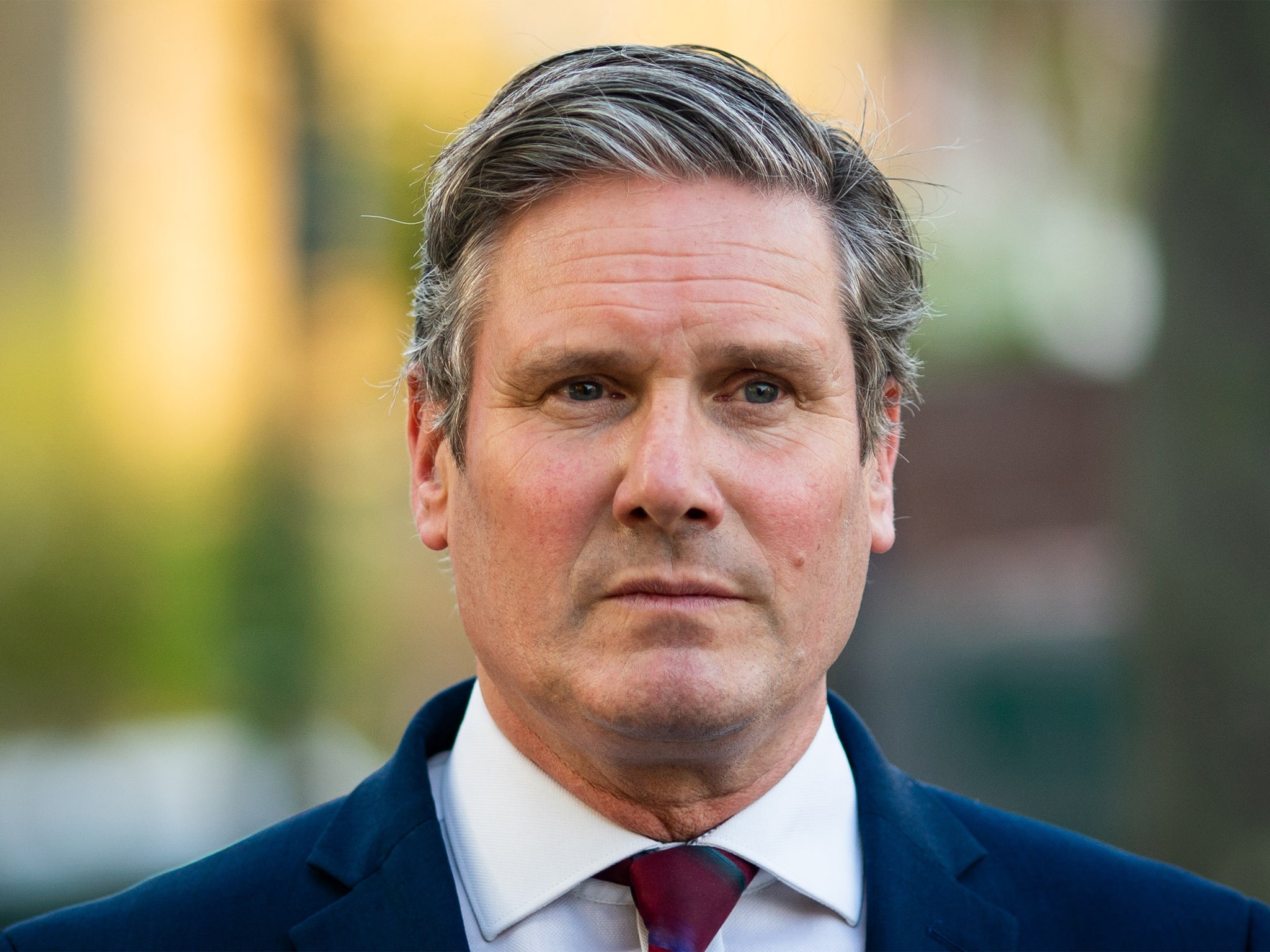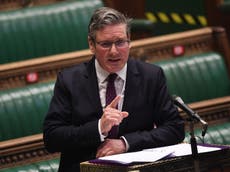Labour lacks moral purpose – it’s disconnected from the hardships of the pandemic
Keir Starmer’s methodology smacks of calculated politicking, the party is exposing a lack of heart, energy, and commitment to the communities it should be serving


Your support helps us to tell the story
From reproductive rights to climate change to Big Tech, The Independent is on the ground when the story is developing. Whether it's investigating the financials of Elon Musk's pro-Trump PAC or producing our latest documentary, 'The A Word', which shines a light on the American women fighting for reproductive rights, we know how important it is to parse out the facts from the messaging.
At such a critical moment in US history, we need reporters on the ground. Your donation allows us to keep sending journalists to speak to both sides of the story.
The Independent is trusted by Americans across the entire political spectrum. And unlike many other quality news outlets, we choose not to lock Americans out of our reporting and analysis with paywalls. We believe quality journalism should be available to everyone, paid for by those who can afford it.
Your support makes all the difference.Well, that didn’t last long. Within months, Keir Starmer has gone from wonderful to wobbly in the eyes of the same political commentators who championed his rise as Labour leader last year. Once effusive over Starmer’s capacity to hold the government to account and show that Labour is serious about power, some supporters are now fretting over Labour’s falling polls. Which is understandable.
Labour is lagging 13 points behind the government, while Starmer’s favourability ratings are in negatives and voters prefer Boris Johnson as prime minister. Even right-wing columnists note that this is remarkable, against a bungling government that has overseen one of the world’s highest Covid-19 death tolls and the worst economic damage in the G7.
Once praiseful pundits now delicately suggest the Labour leader might set out a few policies or something, a vision of what he actually believes. Yet in the midst of a pandemic, where Britain’s grotesque inequalities are providing pathways for the virus, there is something more palpably missing from Labour’s approach. We aren’t just looking at a party lacking policies or a coherent narrative. We are looking at a leadership that lacks moral purpose.
Weirdly, for a party leader who pledged not to use a crisis to score party political points, Starmer’s methodology smacks of calculated politicking. A decently-suited politician trying forensically to outsmart the prime minister is all very well, but it is exposing a lack of heart and of fury at the avoidably perilous realities that too many Britons face. Whether it be local leaders, health professionals or community organisers, those in touch with current realities on the ground often speak with barely concealed rage at the situation and issue demands for better with every word, at every opportunity. Stylistically, Starmer has gone for a more briskly managerial approach, but the impression thus created is of a leader who will not stand up and speak up for the millions currently in crisis.
Some of the colliding horrors currently unfolding across the country include: food and fuel poverty, spiralling household debt, looming evictions, fire and rehire practices, Covid safety failings in the workplace, a lack of financial help to self-isolate if necessary, struggles to access sick pay or universal credit, job losses, collapsing small businesses and destitution caused by having what’s deemed to be the “wrong” immigration status. Communities are dealing with wave after wave of tragic coronavirus deaths, disproportionately battering minority and deprived areas and claiming too many lives too soon. Thanks to lockdown and the vaccine roll-out, infection rates are dropping nationwide yet linger across the Midlands, northwest and northeast – areas of deprivation left to struggle while the rest of the country feels a glimmer of respite.
The Labour leadership has certainly picked up on many of these issues, but few of its interventions turn into full-blown or ongoing campaigns. Most recently the party’s timidity is showing up in rows over NHS pay. Labour has fulsomely rejected the government’s shameful 1 per cent pay increase proposal, but then suggested nudging it only to 2.1 per cent, even though nursing unions are calling for much more. Labour’s reluctance to commit to raising taxes has left it vulnerable to the inevitable follow up: how would you pay for it? That’s a consequence of failing to argue that on principle the nation’s most wealthy should pay a little extra in tax to help those most in need – and especially during a pandemic in which wealth gaps have widened. If Labour does believe in tackling Britain’s devastating inequalities, the leadership has an odd way of showing it.
This disconnect is in part a product of the fractious relationship between party leadership and membership, which has cut off the essential blood supply of its grassroots. With little to get their teeth into at constituency party level, Labour activists are instead volunteering at food banks, mutual aid groups and other pandemic relief efforts. In these roles and rooted in their communities, members have a direct view of the terrible effects of the pandemic, while witnessing the growing appetite for helping out collectively. Such insight has only reinforced the view that it is simultaneously self-defeating and insulting to suppose, as the Labour leadership seems to have done, that hardships on the ground might be mollified with the waving of a few British flags. Currently bunkered off from its membership, the leader’s office may get a rude awakening at party conference this year, when motions and meetings could force a reckoning over how to persuasively stand up for the very communities that Labour was set up to represent.
With the Labour left now sidelined, the politicians and officials who spent five years lamenting Jeremy Corbyn’s leadership have certainly got “their” party back – but what on earth did they want it back for? It’s hard to divine a goal beyond simply being in charge. This looks a lot like power for the sake of power, lacking any greater energy, guiding force, sense of commitment or moral purpose. And if the polls are anything to go by, the public can see right through it.



Join our commenting forum
Join thought-provoking conversations, follow other Independent readers and see their replies
Comments